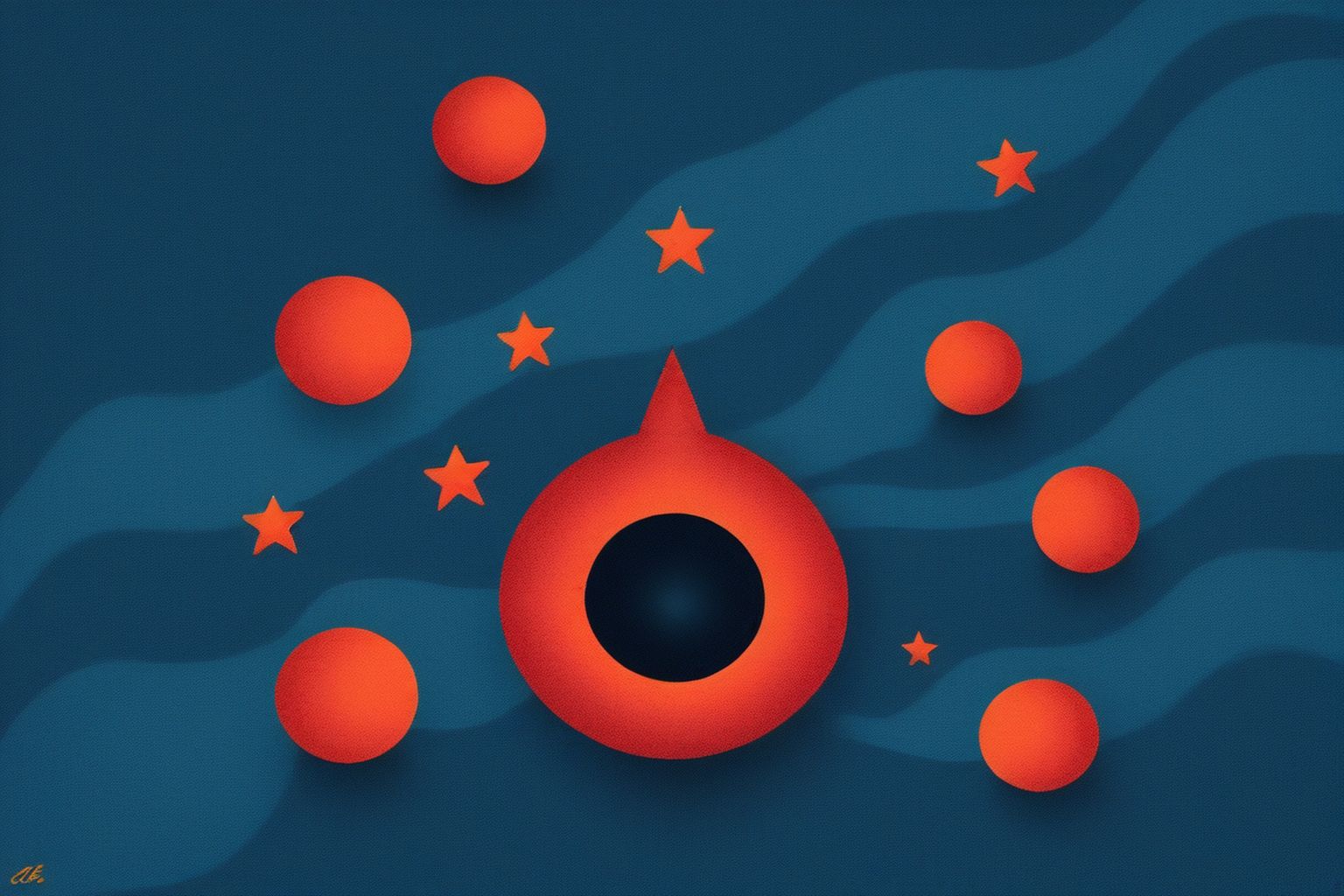Articles
Aug 23, 2024
Why Customers Choose: Revealing Decision Drivers Through Win-Loss Interviews
Discover how to conduct insightful win-loss interviews. Uncover why sales were won or lost: iterate.

Have you ever lost a deal and wondered what went wrong? Or maybe you won a deal but weren't sure why? Understanding the factors that influence a prospect's decision is crucial to improving your sales process and closing more deals. This is where win-loss interviews can provide invaluable insights.
What is a Win-Loss Interview?
A win-loss interview is a structured conversation with a prospect conducted after a deal has been won or lost. It's an opportunity to gather candid feedback from the decision-maker on their experience throughout the sales cycle. This feedback can be incredibly valuable, offering insights into what your team did well and where you can improve. Think of it as a goldmine of information that can help you refine your sales strategies, messaging, and overall customer experience.
Understanding the Essence of Win-Loss Interviews
Let's discuss a topic that's close to Uncovered’s heart: win-loss interviews. In a nutshell, win-loss analysis is like holding up a mirror to your business. It helps you understand why you win some deals and lose others, directly from the horse's mouth.
The Importance of Win-Loss Analysis in Strategic Decision Making
Now, you might be wondering, why bother with win-loss interviews? They are much more than just collecting feedback. They provide invaluable insights that can significantly impact your strategic decision-making. Think about it: less than 20% of companies invest in post-decision research. This means that the vast majority of businesses are missing out on a goldmine of information.
Imagine this - you could boost your win rates by 14% simply by understanding why you're losing some deals. That's precisely what teams that conduct win-loss interviews benefit from, according to a study by Product Marketing Alliance.
Defining Win-Loss Interviews: A Deep Dive
But what exactly are win-loss interviews? In essence, they are structured conversations with prospects, regardless of whether they chose your solution or a competitor's. The aim is to gain a deep understanding of their decision-making process.
What makes these interviews so powerful is their ability to uncover the "why" behind the "what." They help you understand how you're perceived by the market, identify gaps in your product, and even decipher which competitors are winning over your potential customers and why. This granular level of competitive intelligence can be instrumental in refining your sales strategies, product development, and overall market positioning.
Conducting Effective Win-Loss Interviews
You've poured your heart and soul into crafting a winning sales strategy, but sometimes, despite your best efforts, deals are won or lost. Understanding the "why" behind these outcomes is crucial for any business aiming to refine its approach and improve its success rate. This is where win-loss interviews come into play. They offer invaluable insights into the minds of potential customers, helping you understand their decision-making process and identify areas for improvement.
What is the minimum number of win-loss interviews?
There's no magic number when it comes to how many win-loss interviews you should conduct. The right sample size will depend on factors such as your industry, target market, and the complexity of your sales cycle. A product with a higher ACV might have a lower pool of potential interviewees, whereas a product with a lower ACV might have a higher pool. However, as a general rule of thumb, aim for a minimum number of interviews that allows you to identify recurring themes and patterns.
Preparing for Your Interview: Timing, Questions, and Confidentiality
Adequate preparation is the bedrock of insightful win-loss interviews. From meticulously planning the timing of your interviews to crafting the right questions and ensuring confidentiality, every aspect warrants careful consideration.
The Optimal Timing for Win-Loss Interviews

Win-loss interviews should occur as quickly after the win or loss as possible. The rationale behind this is simple: the closer the interview is to the decision-making event, the fresher the experience will be in the participant's mind. This leads to more accurate and detailed responses, increasing the value of the insights you gather.
Crafting the Right Questions: Open vs Closed Questions

The questions you ask during win-loss interviews can significantly impact the quality of information you obtain. It’s key to steer clear of simple "yes" or "no" questions (closed questions) as they can limit the interviewee's ability to elaborate. Instead, focus on crafting open-ended questions that encourage participants to share their thoughts and feelings in detail.
For instance, instead of asking, "Were you satisfied with our pricing?", consider asking, "What were your thoughts on our pricing structure?". This shift from closed to open questions can unearth a goldmine of information. For founders, marketers, and salespersons seeking to enhance their questioning techniques in win-loss interviews, "The Mom Test" by Rob Fitzpatrick is an invaluable resource. This book provides actionable strategies for asking the right questions and extracting meaningful insights from customer conversations.
Maintaining Confidentiality and Building Trust
Transparency and confidentiality are paramount when conducting win-loss interviews. Before commencing the interview, clearly communicate to the participant that their responses will be kept confidential and used solely for internal purposes. This fosters trust and encourages participants to share their honest feedback without fear of repercussions.
The Interview Process: Best Practices and Techniques
Once you've laid the groundwork, it's time to delve into the interview itself. Implementing best practices, such as engaging a neutral third party and recording the interview, can enhance the effectiveness of your win-loss interviews.
Engaging a Third Party for Unbiased Insights
To ensure unbiased insights, "Win-loss interviews should be conducted by a product manager or third party, not a salesperson," suggests Pragmatic Institute. While this is a bare minimum to minimize potential bias, relying on an external third party goes a step further to guarantee objectivity and quality. External parties bring a fresh perspective and specialized expertise, often uncovering insights that internal teams might overlook. Interviewees are generally more candid with third-party interviewers, leading to more honest feedback that can drive meaningful improvements in products and sales strategies.
The Significance of Recording and Transcribing Interviews

Recording and transcribing your interviews can be incredibly beneficial. These records serve as valuable resources for revisiting the feedback, identifying recurring themes, and sharing insights with your team. They provide a comprehensive and accurate account of the interview, ensuring that no crucial details are missed.
Avoiding Common Pitfalls in Interviewing
Even with meticulous planning, there are potential pitfalls that can hinder the effectiveness of your win-loss interviews. For example, asking leading questions or interrupting the interviewee can introduce bias and compromise the integrity of the data collected. Being mindful of these common pitfalls and taking steps to avoid them can significantly improve the quality of your insights.
Transforming Analysis into Competitive Advantage
You've gathered valuable insights from your win-loss analysis.
Now, it's time to transform that data into a powerful competitive advantage. This means moving beyond simply understanding why you win or lose and diving into actionable strategies.
Tactical vs Strategic Utilisation of Insights
It's important to recognize the distinction between tactical and strategic applications of your win-loss analysis:
Tactical Utilization often involves making immediate adjustments to your sales processes, marketing content, or even pricing strategies based on the direct feedback received. For example, if your analysis reveals that a competitor's new feature is swaying decisions, a tactical response might involve highlighting the strengths of your own comparable feature in your sales materials.
Strategic Utilization, however, takes a broader approach. This involves identifying underlying trends and patterns within your win-loss data to make informed decisions about your product roadmap, target market, and overall competitive positioning. For instance, discovering that you consistently lose to a particular competitor in a specific vertical market could lead to a strategic decision to refocus your efforts on a different niche.
Think of it this way: tactical moves help you win individual battles, while strategic decisions are about winning the entire war. Strategically leveraging win-loss insights can have a significant impact on your bottom line. In fact, studies show that a robust win/loss analysis can lead to a 14.2% increase in win rates. That's because, as highlighted by Pragmatic Institute, this type of analysis "helps drive smarter selling by uncovering decision points" within the customer journey. By understanding these crucial points, you can optimize your approach for maximum effectiveness.
Outsourcing vs In-House Interviews: Evaluating the Pros and Cons

When it comes to conducting win-loss interviews, businesses face a crucial decision: outsourcing or handling it in-house? Both approaches have their own merits and drawbacks. Choosing the best option for your situation requires careful consideration of your specific needs and resources. Let's delve into the pros and cons of each approach to help you make an informed decision.
Outsourcing your win-loss interviews to an experienced third-party agency offers several advantages. Primarily, it ensures impartial and unbiased feedback. As an SME pointed out, when a salesperson who interacted with the prospect conducts the interview, it can inadvertently limit the candidness of responses. Prospects may hesitate to express their true opinions or concerns openly, fearing potential repercussions.
By entrusting the process to a neutral third party, you create a safe and objective space for respondents to share their honest feedback. This impartiality is essential to gather accurate insights and gain a true understanding of why you win or lose deals. Moreover, agencies specializing in win-loss interviews possess the necessary expertise and experience to conduct effective interviews.
A Final Word on Mastering Win-Loss Interviews
Let's face it: losing a potential sale stings. But what if I told you that those losses could hold the keys to unlocking incredible future growth? That's where the magic of win-loss interviews comes in.
Think of these interviews as your secret weapon to understanding why customers choose you (yay!) or a competitor (boo!). By directly engaging with these leads, you gain raw, unfiltered insights into their decision-making process. It's like getting a peek behind the curtain of their buying journey.
However, simply conducting win-loss interviews isn't enough. To truly extract golden nuggets of wisdom, you need to approach them strategically. This means asking the right questions, attentively listening to their responses, and identifying patterns that emerge. This valuable feedback can then be used to refine your sales strategies, sharpen your competitive edge, and ultimately, boost your win rate.
Share post:


